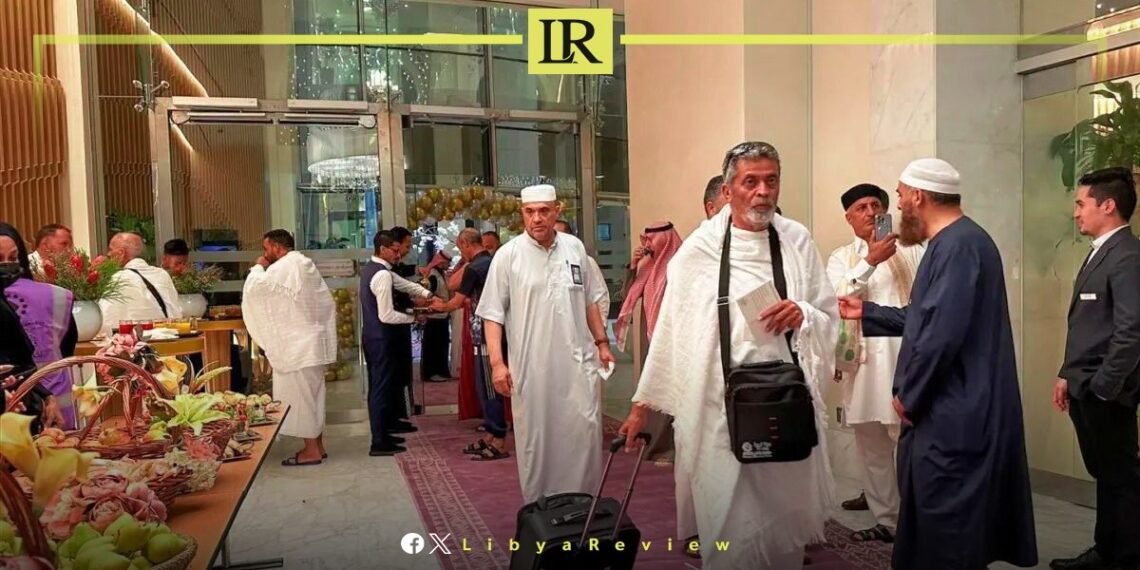Hatem Mohareb, the Director of the Media Office at the Libyan Authority for Hajj and Umrah Affairs, announced that 6,300 Libyan pilgrims have arrived in Mecca so far. An additional 1,500 pilgrims are expected to join by Monday, with the final flight scheduled to arrive then.
In a press statement, Mohareb shared that the Libyan mission has opened four clinics to monitor the health conditions of the pilgrims. These clinics are staffed by Libyan doctors, and critical cases are transferred to Saudi hospitals for further treatment.
Mohareb also mentioned that there are ten individuals requiring dialysis who are transported weekly by the field follow-up committee to a hospital for their dialysis sessions. The pilgrims are being accommodated in four hotels in the central area of Mecca.
Last November, Libya’s Parliament passed a consensus bill for the formation of the Supreme Authority for Hajj and Umrah.
This new body is being tasked with managing and organizing the pilgrimage activities for Libyan citizens. The Parliament also agreed on a proposal to increase performance-based pay for faculty in higher education and research institutions, reflecting an investment in academic excellence.
Further legislative development saw the introduction of a bill aimed at protecting the Arabic language, now under the Legislative Committee’s review for legal advisement.
Libya’s journey since the Arab Spring of 2011 has been marked by tumultuous changes and challenges. The fall of Muammar Gaddafi’s regime led to a power vacuum that plunged the nation into years of conflict between rival factions, each claiming legitimacy and control over various regions. This turmoil disrupted the country’s governance structures and public services, leaving many institutions in disarray.
Libya has been in chaos since a NATO-backed uprising toppled longtime leader Muammar Gaddafi in 2011. The county has for years been split between rival administrations.
Libya’s economy, heavily reliant on oil, has suffered due to the ongoing conflict. The instability has led to fluctuations in oil production and prices, impacting the global oil market and Libya’s economy.
The conflict has led to a significant humanitarian crisis in Libya, with thousands of people killed, and many more displaced. Migrants and refugees using Libya as a transit point to Europe have also faced dire conditions.
The planned elections for December 2021 were delayed due to disagreements over election laws and the eligibility of certain candidates. This delay has raised concerns about the feasibility of a peaceful political transition.
Despite the ceasefire, security remains a significant concern with sporadic fighting and the presence of mercenaries and foreign fighters. The unification of the military and the removal of foreign forces are crucial challenges.


